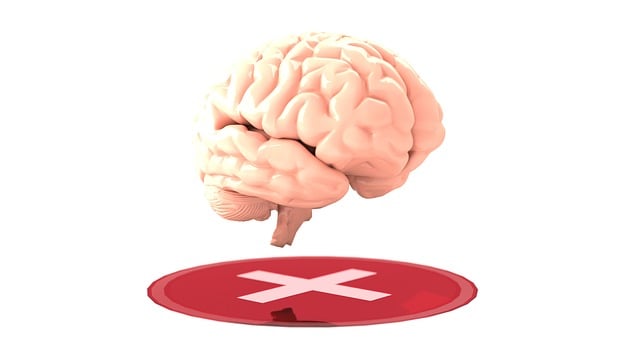Adolescents with cancer face unique psychological challenges, requiring tailored mental health support. Advocacy initiatives focus on comprehensive care, including therapy and education, integrating positive thinking techniques to build resilience. Safe spaces, risk management planning, and community awareness events are vital strategies for holistic care. Educational workshops, online therapy sessions, and peer support normalize conversations about cancer's impact on mental health, fostering a supportive ecosystem for adolescent teens with cancer issues.
Mental health advocacy plays a pivotal role in supporting adolescents facing cancer, ensuring they receive not just medical care but also crucial emotional support. This article delves into key aspects of mental health advocacy for teens with cancer, exploring unique challenges and tailored strategies to enhance their well-being. From understanding the nuances of adolescent psychology to building community collaboration, we offer insights on effective therapy and support services that address critical cancer-related issues faced by young patients.
- Understanding Mental Health Advocacy for Adolescents with Cancer
- Identifying Unique Challenges and Needs of Teen Patients
- Effective Strategies for Promoting Therapy and Support Services
- Building Community Awareness and Collaboration for Lasting Change
Understanding Mental Health Advocacy for Adolescents with Cancer

Mental health advocacy for adolescents with cancer is a critical area that demands tailored and compassionate approaches. Adolescents facing cancer often struggle with unique psychological challenges, including anxiety, depression, and fear related to their diagnosis and treatment. These emotional struggles can be exacerbated by the disruption to their normal routines, social isolation, and the physical side effects of therapy.
Advocacy initiatives in this domain focus on providing comprehensive support, which involves both therapeutic interventions and mental health education programs designed specifically for this age group. Integrating positive thinking and emotional intelligence techniques into these programs can empower adolescents to cope with cancer-related stress. Therapy for adolescent teens with cancer issues should aim to enhance their resilience, promote self-care strategies, and foster a sense of control and empowerment during an otherwise daunting experience.
Identifying Unique Challenges and Needs of Teen Patients

Teen patients facing cancer bring a unique set of challenges to mental health advocacy. Beyond the physical toll of their illness, they grapple with the emotional weight of their diagnosis and treatment, often isolating themselves from peers due to stigma or fear of vulnerability. This can significantly impact their mental wellness, making it crucial for healthcare professionals to understand and address these nuanced needs.
Initiatives focused on mental health awareness for adolescents with cancer should prioritize safe spaces where they feel understood and supported. Incorporating therapy tailored specifically for adolescent teens navigating cancer issues, alongside robust risk management planning for mental health professionals, can help mitigate the impact of their diagnoses. These measures ensure that young patients receive holistic care that attends to both their physical and psychological well-being.
Effective Strategies for Promoting Therapy and Support Services

Promoting therapy and support services for adolescent teens facing cancer issues requires a multi-faceted approach. One effective strategy is to integrate mental wellness programs into schools and communities, normalizing conversations about cancer and its impact on mental health. This can include workshops focused on depression prevention and conflict resolution techniques tailored to the unique challenges faced by young patients. By fostering open dialogue and providing early access to therapeutic resources, we can empower teens to navigate their journey with resilience.
Additionally, leveraging technology to offer remote therapy sessions ensures that even those in rural or underserved areas can access specialized care. Online platforms and mobile apps designed for mental wellness can provide coping mechanisms and support networks, enhancing the overall well-being of adolescent cancer patients. These initiatives not only supplement traditional therapy but also encourage peer support, creating a sense of community and shared understanding among teens grappling with cancer.
Building Community Awareness and Collaboration for Lasting Change

Building community awareness is a powerful strategy to foster mental health advocacy and drive lasting change. By organizing educational workshops, seminars, or community events focused on mental well-being, individuals can break down stigma surrounding adolescent teen cancer issues and other psychological challenges. These platforms encourage open conversations about the importance of early intervention, access to therapy, and available support systems. Through interactive sessions, participants can learn about various therapeutic approaches, such as mindfulness meditation and self-care practices, which have been proven effective in managing stress and anxiety during difficult times.
Collaboration among community leaders, mental health professionals, and peer advocates is essential for creating a supportive ecosystem. By joining forces, these stakeholders can develop targeted programs that address specific needs within the adolescent cancer patient community. This collaborative effort ensures that resources are utilized efficiently, promoting compassion cultivation practices and fostering an environment where every individual feels heard, understood, and supported in their mental health journey.
Mental health advocacy plays a pivotal role in supporting adolescent cancer patients, addressing their unique therapy needs, and fostering community collaboration. By understanding the specific challenges faced by teens with cancer, we can implement effective strategies to enhance access to support services and improve overall mental well-being. Investing in community awareness and collaboration ensures a lasting impact, revolutionizing care for adolescent teens grappling with cancer issues and promoting healthier outcomes.














